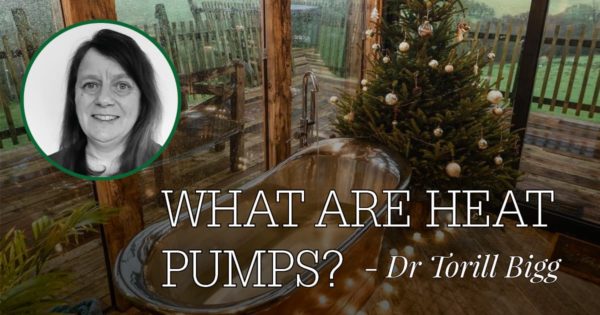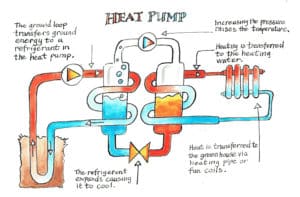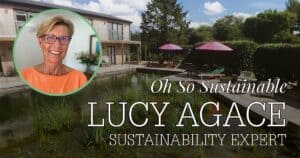
Heat pumps have been very much in the news recently. Interest in them began to increase when it was announced that from 2025 gas boilers could no longer be installed in new homes.
Then more recently gas prices soared, and the government announced that there would be grants available for homeowners to purchase heat pumps.
So, what is the deal with them?
Heat pumps are by no means new. I was first introduced to them 30 years ago while visiting a community of sustainable housing.
As a carbon reduction engineer, I have been recommending heat pumps for a very long time. This is because they can offer a low carbon solution for heating your home.
Many places have already fitted them – they can be found in homes and in libraries, they are heating schools and even the most forward thinking of factory buildings.
Yet to many there is still mystery surrounding them.
There can be a misconception that heat pumps can only be fitted where there is enough land space to dig down into and fit a ground source heat pump, or to new builds. But there are three main types – air to air, water source and geothermal or ground heat pumps, giving a range of applications.
Air source heat pumps are suitable for a wider range of buildings. They can be fitted to any building, either new build or existing.
Air pump ones, for example, are suitable even for older buildings with no garden and examples of these can be found on Victorian terraces in London. However, Air pumps can have disadvantages.
One concern is noise, especially given the domestic setting, as the pump is fitted on the outside of the house, and so near neighbouring homes. Imagine one fitted in your street. Then imagine every house in the row having one. And if they are not well maintained they are noisier.
In addition, homes they are fitted to will need more insulation, and ideally under floor heating.
Heat pumps are also more expensive – relative to a new gas boiler they cost about £4,000 more.
This disadvantage might be addressed by the recently announced government grants offering £5,000 to buy a heat pump. But the funding available will not meet the full cost of buying and installing a heat pump.
It is likely that homeowners will need to find around £2,500 to install a funded heat pump.
The funding pot will amount to around 90,000 grants – so the remaining hundreds of thousands of homes will not be able to benefit.
As non-domestic heating incentives closed a while back, the funding would be for homes only, not businesses, though there is the possibility it could be used for owners’ accommodation, or a home that is yet to be converted into a BnB.
Even so, with rising costs for gas, and a need for solutions to carbon emission, and so the climate crisis, they may work out cheaper than the alternative of leaving global warming unchecked.

Heat Pump Alternative:
Jim Bisset from Hydro Genie:
“Not ready to install a whole new heat pump system? The Hydro Genie system works alongside your current boiler and can reduce your fuel usage by as much as 50%. Hydro Genie works by reducing the oxygen bubbles in your system. View a case study at hydrogenie.co.uk”
Call 01786 850375 to find out more
Read this and other great stories in the December 2021 issue of Luxury BnB Magazine.



